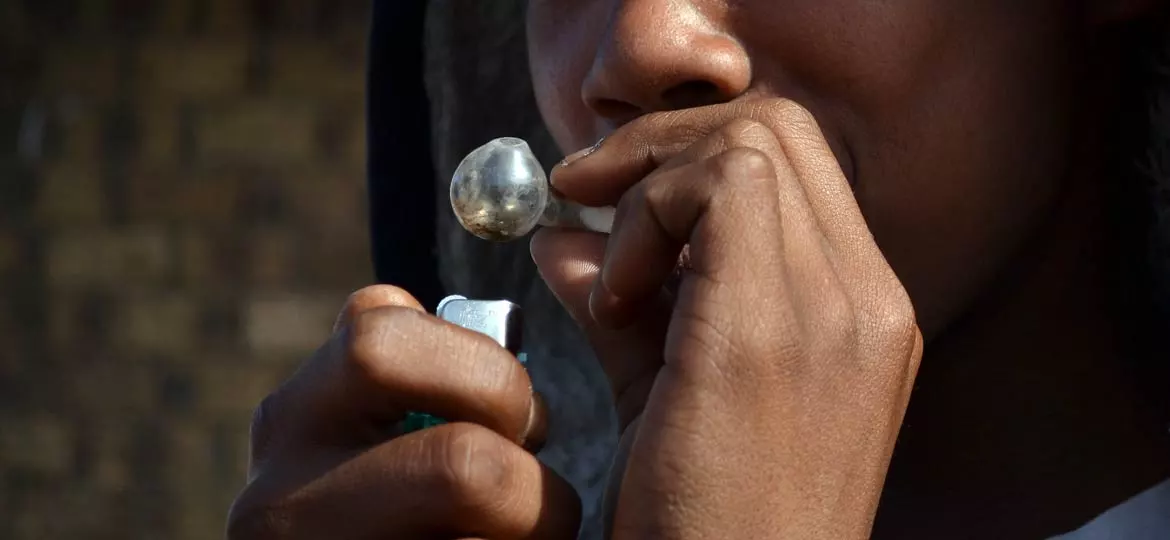In the United States, approximately 14.7 million people have taken meth at least once, as reported by the National Survey on Drug Use and Health. Methamphetamine, better known by its street name “meth,” is a stimulant drug with a high potential for abuse.
Meth is a dangerous stimulant that can have devastating effects on the neurological system. Dopamine, a neurotransmitter in the brain, is increased and released fast by meth, which can promote the usage of the drug and lead to addiction.
A meth hangover is a period that occurs after a substantial period of meth use, otherwise known as a binge. The fear of this hangover, or comedown, is what drives users to continuously ingest the drug.
The withdrawal symptoms from meth can be severe. You should expect a hangover after methamphetamine, but its duration and intensity will vary depending on how your body reacts to the drug.
Keep reading to find out more about meth comedowns and how to get effective treatment so that you never have to experience them again!
What Exactly Causes A Meth Hangover?
Table of Contents
A meth hangover is an intermediate stage of withdrawal from meth, which can be brought on by either psychological dependency on meth or physical dependence.
Meth Abuse Disorder and Your Mental Health
Meth addiction is a mental dependence on the substance because of the way it alters your central nervous system. The accompanying sadness and nervousness of chronic substance abuse can eventually prove fatal for those who suffer from addiction. You can’t function normally mentally without the medicine.
Physical Dependence on Meth
When someone is physically dependent on methamphetamine, cravings are a key indicator of that dependency. You could start to feel physically unwell if you can’t get your hands on meth.
24 Hour Meth Addiction Helpline
What to Expect When You’re Coming Down
It may take up to five weeks to recover from a meth high. Fortunately, you should feel less of the negative effects of meth withdrawal by the end of the first week. Aversions are the only real problem. You may experience severe cravings for five or six weeks if you’re withdrawing from meth.
The Initial 24-Hours
Most people feel the worst during the first day. Most of the worst physical and mental withdrawal symptoms from methamphetamine often occur during this phase.
Withdrawal from meth may be quite dangerous. Therefore, it’s best to have a doctor keep an eye on you. Always be near a friend or family member who can help you receive medical attention if you need it. A variety of undesirable symptoms may manifest in the first 24 hours:
- Anger
- Very high blood pressure
- Exhaustion
- Cravings intensify
- Insomnia
- A rapid or erratic heartbeat
- Irritability
- Psychosis
48-72 Hours Off Meth
Many of the most severe effects of a meth comedown subside as the first shock to the system wears off.
By now, the hallucinations and delusions that accompany meth psychosis are less likely to affect you. It also lowers your risk of having a stroke, heart attack, or passing out suddenly from lack of blood flow to the heart.
However, many of your symptoms will persist. Even if you’re exhausted, your cravings won’t cease, and staying up won’t be any easier.
On top of losing your temper, you can also experience extreme depression. Dopamine and serotonin are constantly flooding your brain during abuse, so this is normal.
Since it is unnecessary, your brain has stopped producing enough amounts of those neurotransmitters. This means that your mental health will suffer in the first stages of your rehabilitation.
From Day 4 until Day 7
Your physical symptoms should begin to subside by the end of the first week. You could be experiencing some persistent stomach pain, and sleep still isn’t coming easy. But you will start to feel better in other ways.
The mental scars will be harder to mend. Within a few months to a year, you might feel completely well with the support of evidence-based treatment choices and antidepressants.
Some people may need additional time. Those with a history of mental illness or substance abuse may find that it takes more time to regain their sense of self.
After the First Week of Meth Detox
You should be finished detoxing after the first week. Your eating and sleep habits should have returned to normal, and most of your symptoms should have disappeared.
Now is the time to decide between inpatient and outpatient programs that treat meth addiction.
While your physical health recovers from substance abuse, these programs can help you deal with any lingering psychological problems or urges.
Relief During the Meth Comedown
A meth hangover, no matter how minor, may be physically exhausting. You may take measures to improve the quality of your recuperation.
Food Intake and Hydration
If you want to help your body heal, it needs all the resources it can get to perform at its best. The best way to combat a hangover is to take care of yourself by drinking plenty of water and eating healthy meals. Have a large bottle of cold water on hand to speed up the healing process.
To maintain a healthy diet, it is recommended to either cook or order in healthy meals. You might want to take a multivitamin just to be safe. Misuse of methamphetamine can cause significant weight loss, which can be accompanied by an insatiable appetite.
Get Plenty of Rest
Maintaining a healthy sleep routine is much more challenging than it may seem. Since meth is a powerful stimulant, its withdrawal symptoms will leave you feeling more exhausted than you’ve ever been.
Sleeplessness is another unfortunate hallmark of a meth hangover. Avoiding blue light and keeping the bedroom dark can help with this. Alternatively, a doctor-recommended sleep aid might help you get some shut-eye.
Work On Your Support System
In the first 24 to 48 hours of meth withdrawal, you probably won’t feel like going to a support group, but you should think about it.
Perhaps not everyone would benefit from attending a support group, but if you’re looking for a place to connect with others who understand your struggles, a good option is a local chapter of the National Alliance on Mental Illness. Receipt of any kind of confirmation from those who have gone through withdrawal themselves may be quite comforting.
Help for Meth is Here!
Meth Withdrawal Symptoms and Treatment Options
Individuals’ continued use and misuse of meth may be influenced by the unpleasantness of the drug’s withdrawal effects. If you’ve ever used meth, or this is your first time, you may expect to feel the effects of withdrawal.
Long-term drug abuse can lead to tolerance, which necessitates ever-increasing doses to have the same benefit, and ultimately a more painful withdrawal experience upon discontinuation of usage. These aren’t the only signs of a meth comedown, though; depression and psychosis are common as well, along with the following:
- Fatigue
- Discomfort or annoyance
- Anxiety
- Hunger
- Headaches
- Dehydration
- Spasms and discomfort in the muscles
- Urge to use
Meth addiction is extremely difficult to overcome. There is a serious danger of harm or even death from this sickness. Thus, it must be treated immediately. As part of their services, most treatment centers offer medically-supervised detox in addition to other therapeutic activities.
Depending on your circumstances, you can participate in meth treatment either as an inpatient or an outpatient.
How Long Does the Crystal Meth Comedown Last?
The duration of a person’s meth comedown or severe withdrawal symptoms is proportional to their duration of use and dosage of methamphetamine. The first 24 hours after stopping meth use are typically the most challenging. After the initial, severe withdrawal, you may have additional comedown symptoms for a few weeks.
The individual’s state of mind and body both before and after meth usage also contribute to the intensity of the comedown. The amount of time it takes to detox and the severity of the symptoms you experience may be increased if you are also misusing other substances. The length and intensity of withdrawal can be affected by the strength and potency of the crystal meth being consumed.
How to Cope with Meth Withdrawal
There is no documented pharmacological therapy for the treatment of meth withdrawal symptoms at the present time. Medication to alleviate the meth comedown symptoms has not yet been authorized by the FDA.
However, in addition to psychotherapy, meth addiction treatment may provide medicine to assist in stabilizing the patient throughout meth withdrawal.
You might find relief in the following during meth detox, in addition to any medication the staff provides:
- Increase your intake of water and other fluids to minimize dehydration and combat the tiredness and weariness that often accompany meth withdrawal.
- Sleeping enough to alleviate the symptoms of a meth comedown. Meth use can make it easier to stay awake for long periods of time. Sleeping will bring you back to a normal state of mind.
- Over-the-counter pain relievers might help with muscle aches.
- Nutrient-rich meals can aid in the detoxification process and speed up recovery from methamphetamine addiction.
Immediate Placement for Meth Treatment in Arizona
Long-Term Recovery from Meth Addiction and Avoiding the Meth Comedown
The only true way to avoid meth comedown is to completely cut the substance out of your life. At Emerald Isle Recovery and Health, we’ve helped countless clients overcome their meth issues and return to a normal, productive life. Our meth addiction treatment services are among some of the best in the country. We’ll help with meth comedown symptoms during the meth withdrawal process and prepare you to enter inpatient treatment.
With combined methods of treatment, including behavioral health and holistic treatment, we’ll help you through the process and ensure you’re ready for life post-treatment. We ensure you have ample support after you graduate and can even help you obtain housing and employment.
For more information on how we can help you overcome meth use disorder, contact a member of our admissions team today.



